Blood and Gold tvc-8 Read online
Page 5
Marius had become sober and was looking into the flames again as though lost in his own sadness. In the light of the fire, his hair was almost entirely white.
"Talk to me, Marius," said Thorne. "My questions can wait. I want the sound of your voice. I want your words." He hesitated. "I know you have much to tell."
Marius looked at him as if startled, and warmed somewhat by this. Then he spoke.
"I'm old, my friend," he said. "I'm a true Child of the Millennia. It was in the years of Caesar Augustus that I became a blood drinker. It was a Druid priest who brought me to this peculiar death, a creature named Mael, mortal when he wronged me, but a blood drinker soon after, and one who still lives though he tried not long ago to sacrifice his life in a new religious fervor. What a fool.
"Time has made us companions more than once. How perfectly odd. It's a lie that I hold him high in my affections. My life is full of such lies. I don't know that I've ever forgiven him for what he did— taking me prisoner, dragging me out of my mortal life to a distant grove in Gaul, where an ancient blood drinker, badly burnt, yet still imagining himself to be a god of the Sacred Grove, gave me the Dark Blood."
Marius stopped. "Do you follow my meaning?" "Yes," said Thorne. "I remember those groves and the whispers among us of gods who had lived in them. You are saying that a blood drinker lived within the Sacred Oak." Marius nodded. He went on.
'Go to Egypt,' he charged me, this badly burnt god, this wounded god, 'and find the Mother. Find the reason for the terrible fire that has come from her, burning us far and wide.' "
And this Mother," said Thorne. "She was the Evil Queen who carried within her the Sacred Core."
Yes," said Marius, his steady blue eyes passing over Thorne gently. "She was the Evil Queen, friend, no doubt of it...
"• • • But in that time, two thousand years ago, she was silent and still and seemed the most desperate of victims. Four thousand years old they were, the pair of them—she and her consort Enkil. And she did possess the Sacred Core, there was no doubt of it, for the terrible fire had come to all blood drinkers on the morning when an exhausted elder blood drinker had abandoned the King and Queen to the bright desert sun.
"Blood drinkers all over the world—gods, creatures of the night, lamias, whatever they called themselves—had suffered agony, some obliterated by terrible flames, others merely darkened and left with a meager pain. The very oldest suffered little, the youngest were ashes.
"As for the Sacred Parents—that is the kind thing to call them, I suppose—what had they done when the sun rose? Nothing. The Elder, severely burnt for all his efforts to make them wake or speak or run for shelter, found them as he had left them, unmovable, heedless, and so, fearing more suffering for himself he had returned them to a darkened chamber, which was no more than a miserable underground prison cell."
Marius stopped. He paused so completely it seemed that the memories were too hurtful to him. He was watching the flames as men do, and the flames did their reliable and eternal dance.
"Please tell me," said Thorne. "You found her, this Queen, you looked upon her with your own eyes that long ago?"
"Yes, I found her," Marius said softly. His voice was serious but not bitter. "I became her keeper. 'Take us out of Egypt, Marius,' that is what she said to me with the silent voice—what you call the Mind Gift, Thorne—never moving her lips.
"And I took her and her lover Enkil, and sheltered them for two thousand years as they remained still and silent as statues.
"I kept them hidden in a sacramental shrine. It was my life; it was my solemn commission.
"Flowers and incense I put before them. I tended to their clothes. I wiped the dust from their motionless faces. It was my sacred obligation to do these things, and all the while to keep the secret from vagrant blood drinkers who might seek to drink their powerful blood, or even take them captive."
His eyes remained on the fire, but the muscles in his throat tightened, and Thorne could see the veins for a moment against the smoothness of his temples.
"All the while," Marius went on, "I loved her, this seeming divinity whom you so rightly call our Evil Queen; that's perhaps the greatest lie I've ever lived. I loved her."
"How could you not love such a being?" Thorne asked. "Even in my sleep I saw her face. I felt her mystery. The Evil Queen. I felt her hell And she had her silence to precede her. When she came to life it ust have seemed as if a curse were broken, and she was at last released."
These words seemed to have a rather strong effect on Marius. His eves moved over Thorne a bit coldly and then he looked back at the fire.
"If I said something wrong I am sorry for it," Thorne said. "I was only trying to understand."
"Yes, she was like a goddess," Marius resumed. "So I thought and so I dreamt, though I told myself and everyone else otherwise. It was part of my elaborate lie."
"Do we have to confess our loves to everyone?" asked Thorne softly. "Can we not keep some secrets?" With overwhelming pain he thought of his Maker. He did nothing to disguise these thoughts. He saw her again seated in the cave with the blazing fire behind her. He saw her taking the hairs from her own head and weaving them into thread with her distaff and her spindle. He saw her eyes rimmed in blood, and then he broke from these memories. He pushed them deep down inside his heart.
He looked at Marius.
Marius had not answered Thorne's question.
The silence made Thorne anxious. He felt he should fall silent and let Marius go on. Yet the question came to his lips.
"How did the disaster come to pass?" Thorne asked. "Why did the Evil Queen rise from her throne? Was it the Vampire Lestat with his electric songs who waked her? I saw him in human guise, dancing for humans, as if he were one of them. I smiled in my sleep, as I saw the modern world enfold him, unbelieving, amused, and dancing to his rhythms."
"That's what happened, my friend," said Marius, "at least with the modern world. As for her? Her rising from her throne? His songs had much to do with it.
For we have to remind ourselves that for thousands of years she had existed in silence. Flowers and incense, yes, these things I gave her in abundance, but music? Never. Not until the modern world made such a thing possible, and then Lestat's music came into the very room where she sat shimmering in her raiment. And it did wake her, not once, but twice.
"The first time was as shocking to me as the later disaster, though it was mended soon enough. It was two hundred years ago—on an island in the Aegean Sea—this little surprise, and I should have taken a hard lesson from it, but this in my pride I failed to do."
"What took place?"
"Lestat was a new blood drinker and having heard of me, he sought me out, and with an honest heart. He wanted to know what I had to reveal. All over the world he'd sought me, and then there came a time when he was weak and broken by the very gift of immortality, a time of his going into the earth as you went into the ice of the Far North.
"I brought him to me; I talked with him as I'm talking to you now. But something curious happened with him which caught me quite off guard. I felt a sudden surge of pure devotion to him and this combined with an extraordinary trust.
"He was young but he wasn't innocent. And when I talked, he listened perfectly. When I played the teacher, there came no argument. I wanted to tell him my earliest secrets. I wanted to reveal the secret of our King and Queen.
"It had been a long, long time since I'd revealed that secret. I'd been alone for a century among mortals. And Lestat, so absolute in his devotion to me, seemed completely worthy of my trust.
"I took him down to the underground shrine. I opened the door upon the two seated figures.
"For the first few moments, he believed the Sacred Parents were statues, but quite suddenly he became aware that both were alive. He realized in fact that they were blood drinkers, and that they were greatly advanced in age, and that in them, he could see his destiny were he to endure for so many thousands of years.
; "This is a terrifying realization. Even to the young who look on me, it is a difficult realization that they might become as pale and hard as I am. With the Mother and Father, it was horrifying, and Lestat was overcome with fear.
"Nevertheless, he managed to bridle his fear and approach the Queen, and even to kiss her on the lips. It was a bold thing to do, but as I watched him I realized it was quite natural to him, and as he withdrew from her, he confessed to me that he knew her name.
"Akasha. It was as if she'd spoken it. And I could not deny that she had given it to him through his mind. Out of her centuries of silence had come her voice once more with this seductive confession.
"Understand how young he was. Given the blood at twenty, he had been a blood drinker for perhaps ten years, no more than that.
"What was I to make of this kiss and this secret revelation?
"I denied my love and my jealousy completely. I denied my crushing disappointment. I told myself, 'You are too wise for such. Learn from what's happened. Maybe this young one will bring something magnificent from her. Is she not a goddess?'
"I took Lestat to my salon, a room as comfortable as this, though in another style, and there we talked until early morn. I told him the tale of my making, of my journey to Egypt. I played the teacher with great earnestness and generosity, and something of pure self-indulgence. Was it for Lestat or for me that I wanted him to know everything? I don't know. But those were splendid hours for me, I know that much.
"The following night, however, while I was about tending to the mortals who lived on my island and believed me to be their lord, Lestat did a dreadful thing.
"Taking from his own luggage a violin which was most precious to him—a musical instrument of uncanny power—he went down into the shrine.
"Now it is plain to me, as it was then, that he could not have done this without the aid of the Queen, who with the Mind Gift opened the many doors for him that lay between him and her.
"Indeed as Lestat tells it, she may have even put the very idea of playing the instrument into his mind. I don't think so. I think she opened the doors and summoned him, but it was he who brought the violin.
"Calculating that it would make a sound totally unfamiliar and quite wonderful to her, he set out to mimic those he'd seen playing the instrument, because in fact he didn't know how to play it.
"Within moments, my beautiful Queen had risen from the throne and was moving towards him. And he in his terror had dropped the violin which she crushed with her foot. No matter. She took him in her arms. She offered her blood to him, and then there happened something so remarkable that it's painful for me to reveal it. Not only did she allow him to drink from her, she also drank from him. "It seems a simple thing, but it is not. For in all my centuries of coming to her, of taking blood from her, I had never felt the press of her teeth against me.
"Indeed, I know of no supplicant whose blood she ever drank. Once there was a sacrifice, and yes, she drank from that victim, and that victim was destroyed. But from her supplicants? Never. She was the fount, the giver, the healer of blood gods, and burnt children, but she did not drink from them.
"Yet she drank from Lestat.
"What did she see in those moments? I cannot imagine, yet it must have been a glimpse into the years of that time. It must have been a glimpse into Lestat's soul. Whatever it was, it was momentary, for her consort Enkil soon rose and moved to stop it, and by this time, I had arrived, and was trying desperately and successfully to prevent Lestat from being destroyed by Enkil who seemed to have no other purpose.
"The King and Queen returned to their throne, besmirched and bloody and finally silent. But for the rest of the night Enkil was restless, destroying the vases and braziers of the shrine.
"It was a terrifying display of power. And I realized that for his safety, indeed, even for my own, I must say farewell at once to Lestat, which caused me excruciating pain, and so we parted the following night."
Marius fell silent again, and Thorne waited patiently. Then Marius began to speak once more.
"I don't know what caused me the worst pain—the loss of Lestat, or my jealousy that she had given and taken with him. I'm unable to know my own mind. You understand I felt I possessed her.
I felt she was my Queen." His voice dropped to a whisper. "When I revealed her to him, I was displaying a possession! You see what a liar I was?" he asked. "And then to lose him, to lose this young one with whom I felt such utter communion. Ah, that was such rich pain. Rather like the music of the violin, I think, just as deeply colored, such terrible pain."
"What can I do to ease your sorrow now?" asked Thorne. "For you carry it, as if she were here still."
Marius looked up, and suddenly an expression of pure surprise brightened his face. "You're right," he said. "I carry the obligation, as if she were still with me, as if even now I had to go and spend my hours in her shrine."
"Can't you be glad that it's over?" asked Thorne. "It seemed when I lay in my cave of ice, when I saw these things in dreams that there were others who were at peace when it was finished. Even the red-haired twins whom I saw standing before everyone seemed to have a sense that it was done." Marius nodded. "They do all share this," said Marius, "except perhaps for Lestat." He looked wondering at Thorne.
"Tell me now how she was wakened finally," said Thorne, "how she became the slayer of her children. I felt her pass me, close and with a searching eye, yet somehow I was not found."
"Others as well escaped her," said Marius, "though how many no one knows. She tired of her slaughter and she came to us. I think she thought that she had time to finish. But her end came swiftly enough.
"As for the second resurrection, it was Lestat again, but I am as much to blame myself.
"This is what I believe happened. I brought the inventions of the modern world to her as offerings. At first it was the machines that played music, and then came those which would show moving pictures.
At last, I brought the most powerful of all, the television that would play constantly. I set it in her shrine as though it were a sacrifice."
"And she fed upon this thing," said Thorne, "as gods are wont to do when they come down to their altars."
"Yes, she fed upon it. She fed upon its terrible electric violence. Lurid colors flashed over her face, and images accosted her. It might have wakened her with the sheer clamor. And I wonder sometimes if the endless public talk of the great world could not have in itself inspired an imitation of a mind in her."
"An imitation of a mind?"
"She awoke with a simple ugly sense of purpose. She would rule this world."
Marius shook his head. His attitude was one of profound sadness.
"She would outwit its finest human minds," he said sorrowfully. "She would destroy the vast majority of this world's male children. In a female paradise, she could create and enforce peace. It was nonsense— a concept drenched in violence and blood.
And those of us who tried to reason with her had to take great care with our words not to insult her. Where could she have gotten these notions, except from the bits and pieces of electric dreams that she watched on the giant screen I'd provided for her? Fictions of all kinds, and what the world calls News, all this had inundated her. I had loosed the flood."
Marius's gaze flashed on Thorne as he continued: "Of course she saw the vivid video songs of The Vampire Lestat." Marius smiled again, but it was a sad smile, and it brightened his face as sad songs brighten a face. "And Lestat presented in his video films the very image of her on her throne as he had seen her centuries ago. Breaking faith with me, he told the secrets I had confided to him."
"Why didn't you destroy him for this!" said Thorne, before he could stop himself. "I would have done so."
Marius only shook his head.
"I think I've chosen to destroy myself instead," he said. "I've chosen to let my heart break inside me."
"Why, explain this thing to me."
"I can't, I can't explain it to myself,"
said Marius. "Perhaps I understand Lestat only too well. He couldn't endure the vow of silence he'd given me. Not in this world you see around you with all its wonders. He felt driven to reveal our history." The heat danced in Marius's face. His fingers gripped the arms of his chair with only a little restlessness. "He tore loose from all bonds that connected us," he said, "friend and friend, teacher and student, old and young, watcher and searching one."
"Outrage," said Thorne, "what else could you feel but fury?"
"Yes, in my heart I did. But you see, I lied to them, the other blood drinkers, our brothers, our sisters. Because once the Queen had risen, they needed me...."
"Yes," said Thorne, "I saw it."
"They needed the wise one to reason with her, and deflect her from her course. There was no time for quarreling. Lestat's songs had brought her forth a monster. I told the others there was no wound. I took Lestat in my arms. And as for my Queen, ah, my Queen, how I denied that I had ever loved her. And all this for the company of a small band of immortals. And I tell the truth to you."
"Does it feel good to you to say it?"
"Oh, yes, it feels good," Marius answered.
"How was she destroyed? "
"Thousands of years ago a curse had been put on her by one whom she had treated with cruelty and that one came to settle the score. A single blow decapitated our beautiful Queen, and then from her body the Sacred Core of the blood drinkers was promptly taken into the avenger, either from brain or heart, I know not which, for during those fatal moments I was as blind as all the others.
"I know only the one who slew the Queen now carries the Sacred Core within her and where she's gone or how I can't tell you."
"I saw the red-haired twins," said Thorne. "They stood beside her body. 'The Queen of the Damned,' said my Maharet. I heard those words. I saw Maharet with her arm around her sister." Marius said nothing.
Again Thorne felt himself become agitated. He felt the beginnings of pain inside. In memory, he saw his Maker coming towards him in the snow. What fear did he have then, a mortal warrior facing a lone witch whom he could destroy with sword or ax? How frail and beautiful she had seemed, a tall being in a dress of dark-purple wool, her arms out as if welcoming him.

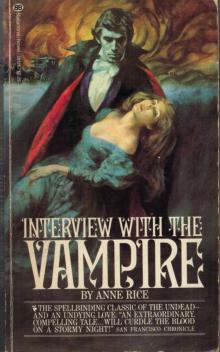 Interview with the Vampire
Interview with the Vampire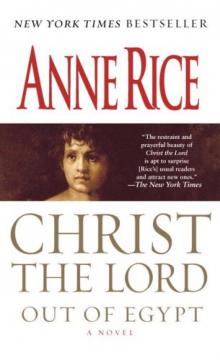 Christ the Lord: Out of Egypt
Christ the Lord: Out of Egypt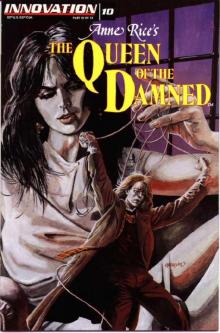 The Queen Of The Damned
The Queen Of The Damned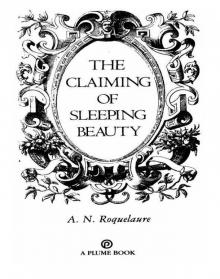 The Claiming of Sleeping Beauty
The Claiming of Sleeping Beauty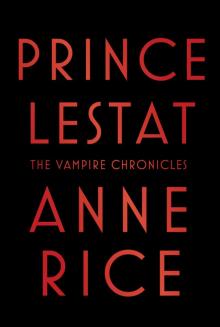 Prince Lestat
Prince Lestat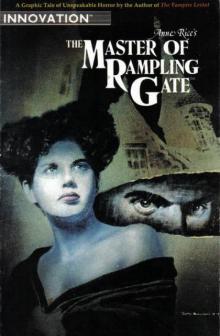 The Master of Rampling Gate
The Master of Rampling Gate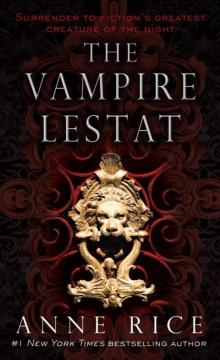 The Vampire Lestat
The Vampire Lestat Blood Canticle
Blood Canticle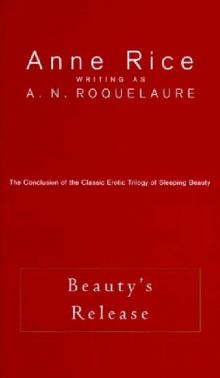 Beauty's Release
Beauty's Release Pandora
Pandora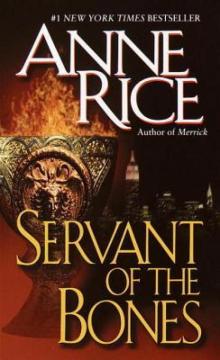 Servant of the Bones
Servant of the Bones Of Love and Evil
Of Love and Evil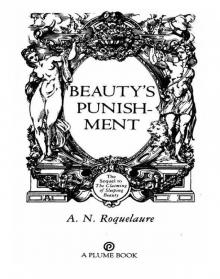 Beauty's Punishment
Beauty's Punishment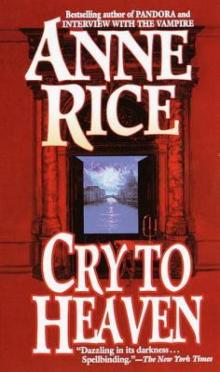 Cry to Heaven
Cry to Heaven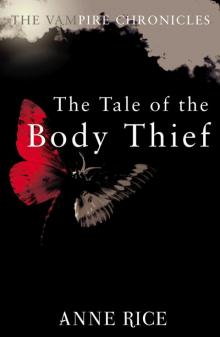 The Tale of the Body Thief
The Tale of the Body Thief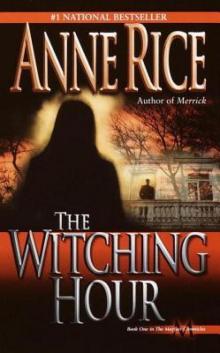 The Witching Hour
The Witching Hour Memnoch the Devil
Memnoch the Devil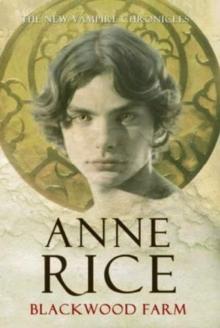 Blackwood Farm
Blackwood Farm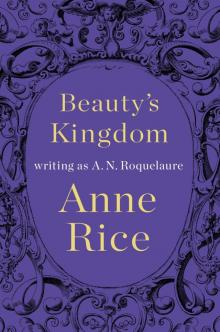 Beauty's Kingdom
Beauty's Kingdom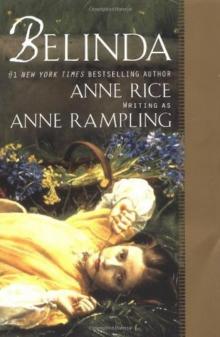 Belinda
Belinda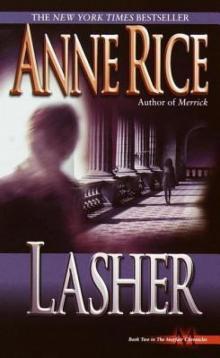 Lasher
Lasher Vittorio, the Vampire
Vittorio, the Vampire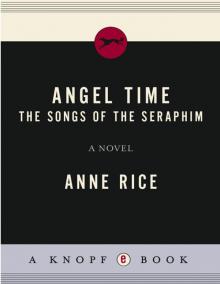 Angel Time
Angel Time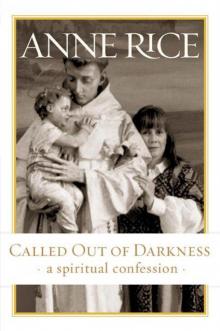 Called Out of Darkness: A Spiritual Confession
Called Out of Darkness: A Spiritual Confession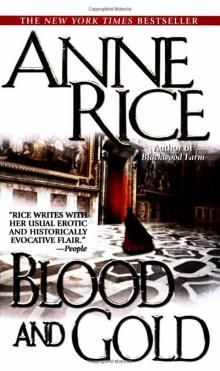 Blood And Gold
Blood And Gold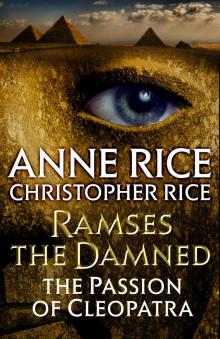 The Passion of Cleopatra
The Passion of Cleopatra Taltos
Taltos Exit to Eden
Exit to Eden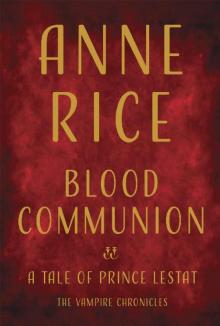 Blood Communion (The Vampire Chronicles #13)
Blood Communion (The Vampire Chronicles #13) The Wolf Gift
The Wolf Gift The Wolves of Midwinter
The Wolves of Midwinter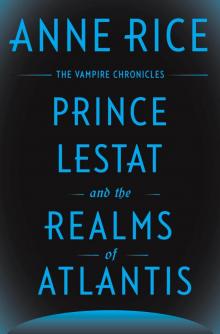 Prince Lestat and the Realms of Atlantis
Prince Lestat and the Realms of Atlantis The Ultimate Undead
The Ultimate Undead The Vampire Lestat tvc-2
The Vampire Lestat tvc-2 The Road to Cana
The Road to Cana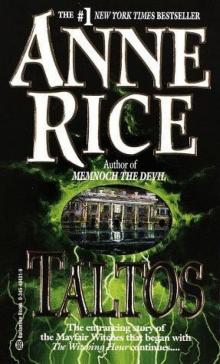 Taltos lotmw-3
Taltos lotmw-3 Merrick tvc-7
Merrick tvc-7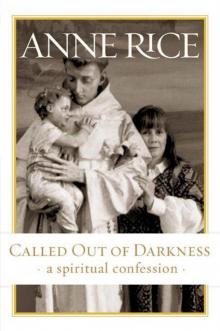 Called Out of Darkness
Called Out of Darkness Pandora - New Vampires 01
Pandora - New Vampires 01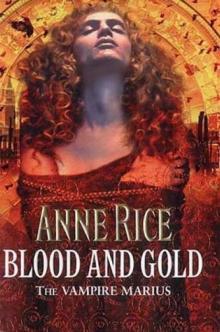 Bllod and Gold
Bllod and Gold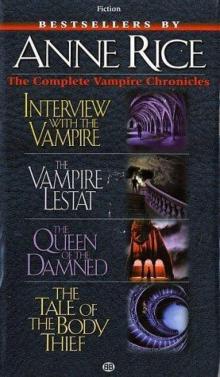 The Queen Of the Damned: Vampire Chronicles
The Queen Of the Damned: Vampire Chronicles The Sleeping Beauty Trilogy
The Sleeping Beauty Trilogy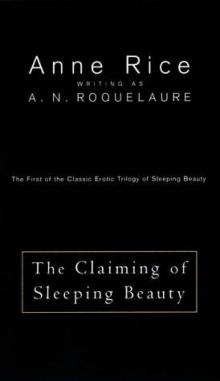 The Claiming of Sleeping Beauty b-1
The Claiming of Sleeping Beauty b-1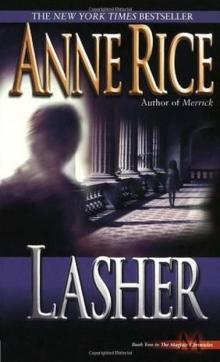 Lasher lotmw-2
Lasher lotmw-2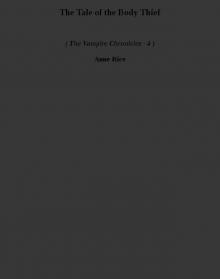 The Tale of the Body Thief tvc-4
The Tale of the Body Thief tvc-4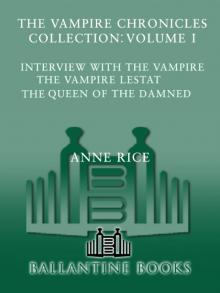 The Vampire Chronicles Collection
The Vampire Chronicles Collection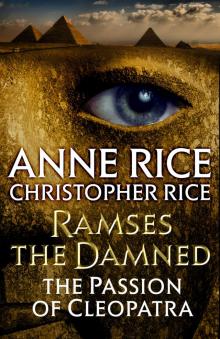 Ramses the Damned
Ramses the Damned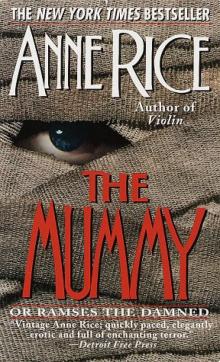 The Mummy - or Ramses the Damned
The Mummy - or Ramses the Damned Vittorio, The Vampire - New Vampires 02
Vittorio, The Vampire - New Vampires 02 The Vampire Armand tvc-6
The Vampire Armand tvc-6 Queen of the Damned tvc-3
Queen of the Damned tvc-3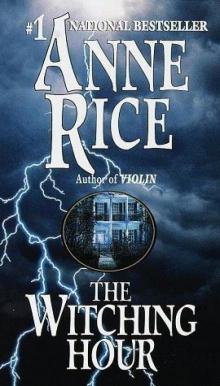 The witching hour lotmw-1
The witching hour lotmw-1 Feast of All Saints
Feast of All Saints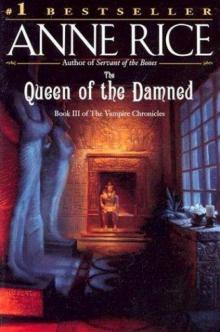 Queen of the Damned
Queen of the Damned The Wolves of Midwinter twgc-2
The Wolves of Midwinter twgc-2 The Mummy
The Mummy Blood and Gold tvc-8
Blood and Gold tvc-8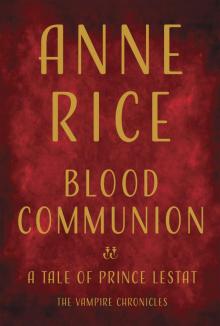 Blood Communion
Blood Communion Interview with the Vampire tvc-1
Interview with the Vampire tvc-1 Prince Lestat: The Vampire Chronicles
Prince Lestat: The Vampire Chronicles